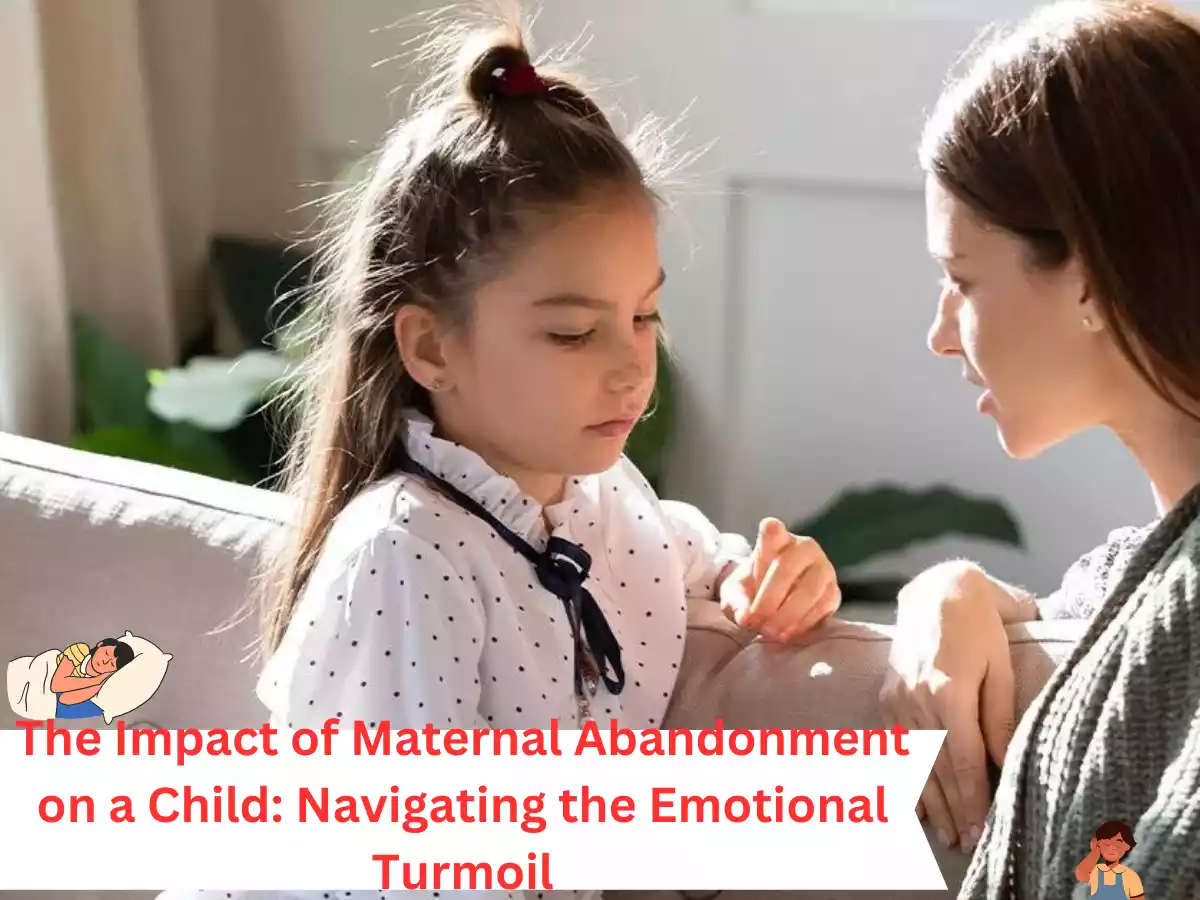Introduction: what happens to a child when a mother abandons them
Maternal abandonment is a heart-wrenching reality that can have profound and lasting effects on a child’s emotional and psychological well-being. When a mother abandons her child, it sends shockwaves through the child’s world, leaving them to grapple with feelings of rejection, insecurity, and confusion. In this article, we delve into the intricate web of emotions that ensue when a mother abandons her child, shedding light on the long-term consequences and ways to mitigate the impact.
Understanding Maternal Abandonment
Defining Maternal Abandonment
Maternal abandonment refers to the situation where a mother physically, emotionally, or psychologically withdraws from her child’s life, leaving the child to fend for themselves without her presence or support.
Factors Leading to Maternal Abandonment
Multiple factors can contribute to maternal abandonment, including:
- Personal Struggles: Maternal mental health issues, substance abuse, and financial hardships can make it challenging for a mother to fulfill her parental responsibilities.
- Relationship Dynamics: Discord with the child’s father or strained familial relationships may lead a mother to distance herself from her child.
- Unplanned Pregnancy: Feeling overwhelmed by an unplanned pregnancy might lead a mother to consider abandonment as a way out.
- Cultural and Social Pressures: Societal stigma, cultural norms, or lack of social support can also play a role in maternal abandonment.
The Emotional Roller Coaster
Initial Shock and Confusion
When a child is suddenly abandoned by their mother, they often experience a sense of shock and confusion. The foundation of their world is shaken, and they struggle to comprehend why their primary caregiver has disappeared.
Overwhelming Feelings of Rejection
Maternal abandonment can trigger deep-seated feelings of rejection. The child may internalize the abandonment as a reflection of their worth, leading to profound self-esteem issues.
Trust and Relationship Challenges
Abandonment can erode a child’s ability to trust and form healthy relationships. They may fear abandonment in other relationships and struggle with intimacy and vulnerability.
Emotional Regulation Difficulties
Children abandoned by their mothers may have trouble regulating their emotions. They might experience intense mood swings, anger, anxiety, and depression.
Impact on Adult Relationships
The effects of maternal abandonment often extend into adulthood. Individuals who have experienced such abandonment may encounter challenges in maintaining stable, healthy relationships.
Self-Identity and Self-Worth
Abandoned children may grapple with an unstable self-identity and struggle to recognize their self-worth. Developing a strong sense of self becomes a daunting task.
Breaking the Cycle
While the impact of maternal abandonment is significant, it is not an unbreakable cycle. With the right support, therapy, and personal growth, individuals can work towards healing and creating healthier relationships.
Coping Strategies and Healing
Professional Counseling
Seeking professional counseling can provide abandoned children with a safe space to process their emotions and develop effective coping mechanisms.
Building a Support System
Creating a strong support network of friends, family, and mentors can help abandoned children feel valued and loved.
Self-Care and Emotional Regulation
Teaching emotional regulation and self-care techniques equips abandoned children with tools to navigate life’s challenges more effectively.
Conclusion
Maternal abandonment casts a long shadow over a child’s emotional landscape, leaving behind scars that can persist into adulthood. However, through resilience, support, and a commitment to healing, individuals can rise above the pain and rebuild their lives. By understanding the complex emotions that arise from maternal abandonment and actively seeking strategies for healing, those affected can find their path to recovery.
FAQs (Frequently Asked Questions)
- What is maternal abandonment?
Maternal abandonment refers to a situation where a mother withdraws emotionally, physically, or psychologically from her child’s life, leaving them without her support or presence. - What are the potential causes of maternal abandonment?
Maternal abandonment can result from personal struggles, relationship dynamics, unplanned pregnancies, and cultural or social pressures. - How does maternal abandonment impact a child’s emotions?
Maternal abandonment can lead to initial shock and confusion, overwhelming feelings of rejection, trust issues, and difficulties in emotional regulation. - Can the effects of maternal abandonment be overcome?
Yes, with the right support, therapy, and personal growth, individuals can work towards healing and creating healthier relationships, breaking the cycle of abandonment. - What steps can abandoned children take to cope and heal?
Abandoned children can seek professional counseling, build a strong support system, and practice self-care and emotional regulation techniques to cope with the impact of abandonment.























